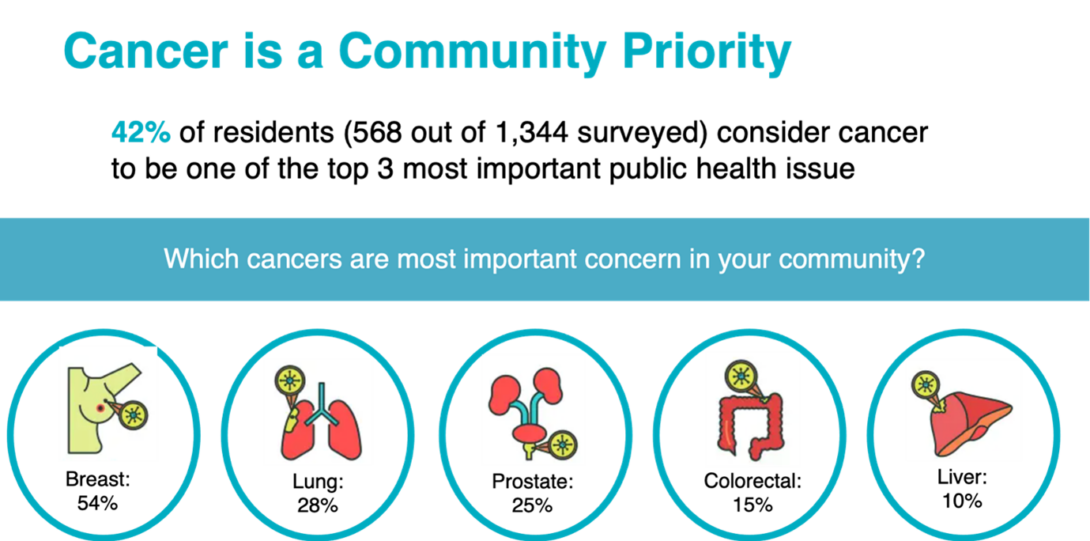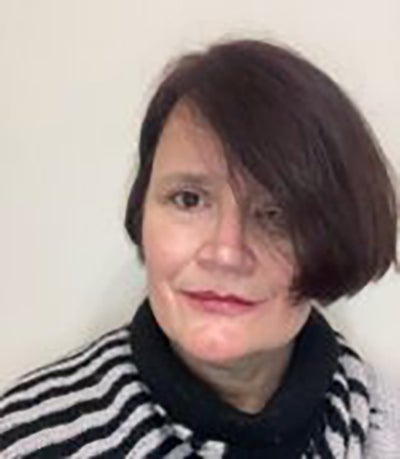Community Voices Shape the Future of the University of Illinois Cancer Center
Introduction
Cancer Rates and Disparities in Chicago
Cancer is the second highest cause of death for people in Cook County, Illinois.
In Cook County:
- From2016-2020, there were 129,876 new cases of cancer.
- 439 cancer cases were reported for every 100,000 people.
- From 2016-2020, there were 45,424 people who died of cancer.
Prevention and early detection of cancer are key to improving our county’s health.
Between 2018 and 2022, 6,691 patients were diagnosed or started their cancer treatment at The University of Illinois' Cancer Center (UICC). Over 40% of these patients were on Medicaid (the health insurer for those with less income and resources), making UICC and University of Illinois Hospital (UIH) Metro Chicago's academic hub for serving individuals with fewer resources and communities of color who disproportionately rely on Medicaid for health insurance. UICC and UIH are critical components of Cook County's cancer safety net and many of the state’s major cancer health equity projects are headquartered at UICC. Every 5 years, UICC engages in a strategic planning process that involves a community health needs assessment (CHNA) to chart an effective path forward to meet the community’s cancer health needs. The CHNA includes both qualitative and quantitative analysis. The qualitative component includes analysis of a variety of focus groups or listening sessions. The quantitative analysis includes the deployment of a community survey to assess community member’s priorities and needs, along with secondary data analysis from a variety of sources. The figure below shows the responses of residents surveyed in 2023 and 2024 and depicts their priorities related to cancer within their communities.
Cancer is a community priority

Figure 1. Survey results from 2023-2024 Community Health Needs Assessment
Supporting UICC
Supporting UICC’s Focus on Community-led Change
This spring, the P3RC Applied Practice Experience Support provided me with financial assistance to work with the UICC on their 5-year strategic plan as I complete my MPH. As a long-time health policy practitioner, this funding helped me to build qualitative research skills to apply to a variety of health equity initiatives in Chicago. I was involved with the qualitative component of the UICC CHNA. I developed a code book for analysis focusing on the identification of strengths, community resources, and potential partners for UICC. I transcribed 4 focus group audio-files, identified themes and summarized findings.
Focus group participants included community members and the organizations that serve them. Listening directly to community members helps UICC direct and prioritize their resources in a way that meets their community’s needs, supports a core UICC value of community-informed and community-driven decision making, and supports UICC’s mission “to provide innovative care designed to eliminate cancer health inequities by elevating the voices of its diverse communities as stakeholders in discovery, education and the provision of care.”
Focus Group Interview Themes
During focus group interviews, community members were asked to identify the strengths of their communities, including resource, organizational, or individual strengths. They also suggested new ways that UICC can partner and identified organizations to partner with, including churches such as Compassion Baptist and Trinity United Church of Christ, government agencies such as the Chicago Department on Aging and the Chicago Park District, and community organizations such as the Resurrection Project and Equal Hope. Key themes from the focus group interviews include:
- Community pride. Many respondents described their community resources with pride stating, “it’s just gorgeous” and commenting “we’ve got everything up there.”
- Engaged Community Members. Respondents stated their appreciation for cultures of altruism and volunteerism as one person said “there are willing and committed people who have a passion for doing the work of helping and improving the community.”
- Opportunities for collaboration exist. Respondents indicated that there are untapped possibilities for UICC to collaborate at the individual, service, and organizational levels to advance shared priorities.
Next Steps for UICC
These findings will help the development of new interventions taking a community informed and systems change approach over the next 5 years. In line with P3RC and its approach to creating change and improving the lives of Illinoisans by understanding root causes of inequities and advancing policy and other forms of systemic change, the UICC will analyze root causes of cancer inequities and work with community members and community organizations to advance long-term systemic change addressing structural inequities.
Author

About the Author:
Anne Marie Murphy is a current MPH student in Community Health Sciences division with an interest in cancer, women’s healthcare, cancer disparities, healthcare expansion, and state policy change topics.